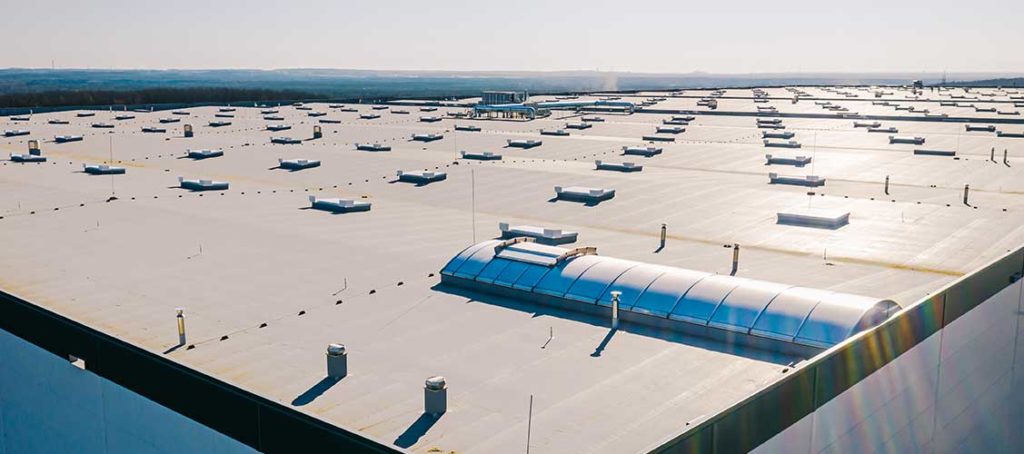Roof coatings are designed for protecting and extending the useful service life of roof assemblies for new construction and more commonly, existing roof coverings, such as BUR, metal, modified bitumen, single ply membranes, and spray polyurethane foam.
Roof coatings are thicker than paint and have a higher solids content. Roof coatings are formulated to protect roofs from the damaging effects of weather and the environment, such as UV light, and excessive water and wind. They are formulated to provide protection for many years and are also extremely elastic; they typically contain a high level of top-quality resin. The high quality resins and the volume of resins introduced during manufacturing allow the coating to maintain its elastic properties throughout its life cycle. Once cured, these resins form an elastomeric and durable film, which provides an additional measure of waterproofing and allows the roof coating to bridge small cracks and membrane seams found on roofs. Unlike paint, which is typically applied in portions of a gallon per 100 square feet, roof coatings are applied in terms of multiple gallons per 100 square feet. Today, there are various types of roof coatings on the market that can benefit any type of roof.
The most common types of roof coatings are acrylic coatings, asphalt coatings, polyurethane coatings, and silicone coatings.


